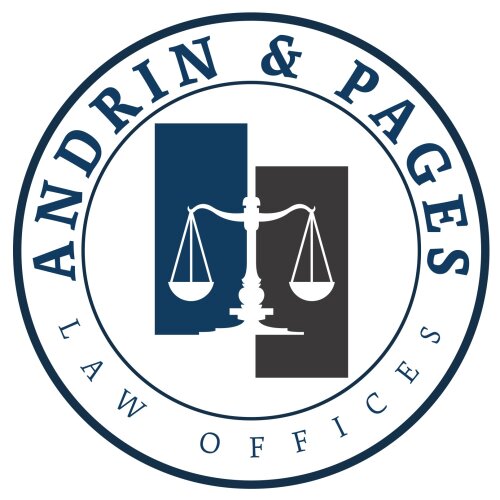Best Administrative Lawyers in Philippines
Share your needs with us, get contacted by law firms.
Free. Takes 2 min.
Or refine your search by selecting a city:
List of the best lawyers in Philippines

Dagsaan Monterde Castillo Law and Notary Public (DMC LAW)
15 minutes Free ConsultationAbout Administrative Law in Philippines
Administrative Law in the Philippines deals with the structure, powers, and functions of government agencies. It encompasses the rules and procedures that these agencies must follow when enforcing laws and regulations. This area of law ensures the accountability of the government and provides the mechanisms by which the public can challenge administrative actions. Administrative law is essential for maintaining the balance of power between different government branches and supports the principles of fair treatment and justice for citizens.
Why You May Need a Lawyer
There are several situations where you might require legal assistance in administrative matters:
- License and Permit Issues: When applying for or renewing business licenses and permits, legal advice can ensure compliance with all regulatory requirements.
- Administrative Appeals: If you face an adverse decision from a government agency, an administrative lawyer can help you navigate the process of filing and pursuing an appeal.
- Government Regulations: Businesses often need legal support to understand and comply with complex regulatory frameworks that affect their operations.
- Public Bidding and Procurement: Legal guidance is crucial when participating in government contracts and understanding the nuances of public procurement law.
- Disciplinary Actions: If you are subject to a disciplinary action or investigation by a government body, legal representation can protect your rights and interests.
Local Laws Overview
Administrative law in the Philippines is heavily influenced by both constitutional mandates and statutory requirements. Some key aspects include:
- The Administrative Code of 1987: This code outlines the powers and responsibilities of administrative bodies and civil servants.
- The Civil Service Rules: These regulations impact government employees and outline processes for recruitment, employment, and grievances.
- The Government Procurement Reform Act (RA 9184): Governs the procurement of goods and services by the government, enforcing transparency and competition.
- Local Government Code: Establishes the framework for the powers and functions of local government units. This includes local administration and decentralization efforts.
Frequently Asked Questions
What is administrative law?
Administrative law regulates the activities of governmental agencies, covering rules, procedures, and actions related to their decision-making processes.
How can I challenge a decision made by a government agency?
You may file an administrative appeal or seek judicial review. Consulting a lawyer can help determine the best course of action based on your unique circumstance.
What should I do if I encounter delays in receiving permits?
Contact the relevant government agency to inquire about the status or potential issues. A lawyer can assist with resolving bureaucratic hurdles effectively.
Are there specific laws applicable to businesses in the provinces?
Yes, the Local Government Code and other local ordinances shall apply. It’s important to be familiar with regulations specific to your region.
What role do administrative agencies play?
Agencies are responsible for enforcing laws, implementing regulations, issuing permits, conducting oversight, and levying penalties when needed.
Can I participate in a public bidding process as a foreign entity?
Participation is typically reserved for Filipino citizens or entities; however, there are exceptions. Consultation with a lawyer can clarify these circumstances.
What are common consequences for non-compliance with administrative regulations?
Consequences can include fines, license suspension or revocation, and in severe cases, legal proceedings.
How long does it take to appeal a government decision?
The timeframe varies depending on the complexity of the case and the agency involved. Legal assistance can expedite processes through proper filing and advocacy.
What is the role of the Office of the Ombudsman?
The Ombudsman investigates corruption and misconduct in public office, exerting a significant role in maintaining administrative integrity.
Can I represent myself in administrative proceedings?
While self-representation is possible, it is generally advisable to engage a lawyer to navigate complex legal procedures effectively.
Additional Resources
Consider the following resources for further assistance:
- Office of the Ombudsman: A government agency combating corruption and ensuring public accountability.
- Civil Service Commission: Governs matters of civil service employment and disputes.
- Local Government Units (LGUs): Provide information specific to local administrative processes.
- Department of Trade and Industry (DTI): Offers assistance with business regulations and compliance.
- Integrated Bar of the Philippines (IBP): A resource for finding certified legal professionals.
Next Steps
If you require legal assistance in administrative matters, consider the following steps:
- Identify the specific administrative issue or concern you are facing.
- Prepare all relevant documents, correspondence, and evidence related to your case.
- Consult with a lawyer specialized in administrative law for legal assessment and strategy.
- Follow the lawyer's guidance in pursuing appeals or resolving disputes.
- Stay informed about any developments in your case and maintain clear communication with your legal representative.
By taking these steps, you can effectively address administrative challenges and protect your rights and interests in the Philippines.
Lawzana helps you find the best lawyers and law firms in Philippines through a curated and pre-screened list of qualified legal professionals. Our platform offers rankings and detailed profiles of attorneys and law firms, allowing you to compare based on practice areas, including Administrative, experience, and client feedback.
Each profile includes a description of the firm's areas of practice, client reviews, team members and partners, year of establishment, spoken languages, office locations, contact information, social media presence, and any published articles or resources. Most firms on our platform speak English and are experienced in both local and international legal matters.
Get a quote from top-rated law firms in Philippines — quickly, securely, and without unnecessary hassle.
Disclaimer:
The information provided on this page is for general informational purposes only and does not constitute legal advice. While we strive to ensure the accuracy and relevance of the content, legal information may change over time, and interpretations of the law can vary. You should always consult with a qualified legal professional for advice specific to your situation.
We disclaim all liability for actions taken or not taken based on the content of this page. If you believe any information is incorrect or outdated, please contact us, and we will review and update it where appropriate.
Browse administrative law firms by city in Philippines
Refine your search by selecting a city.















